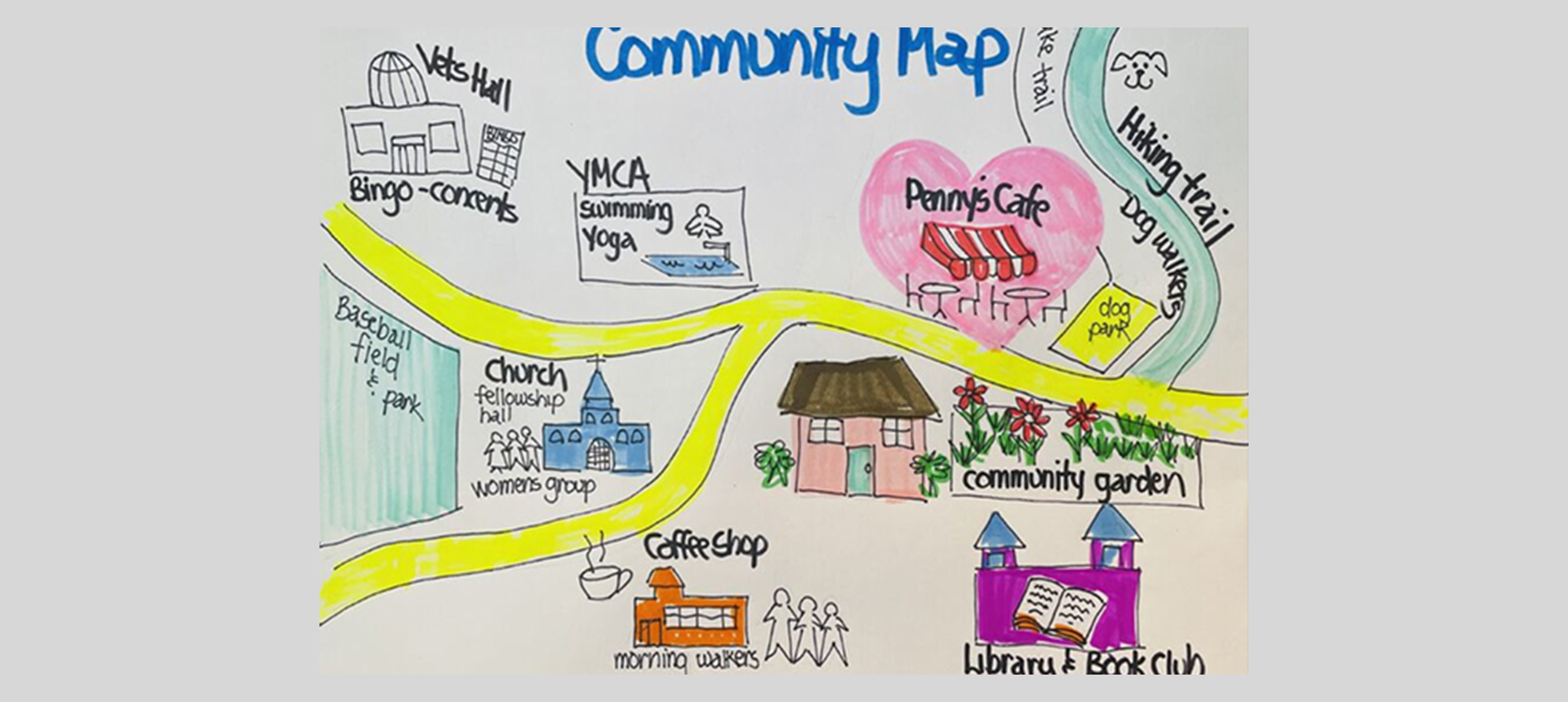
Circles of Connection – Project Findings
Between January and June 2023, One Door Mental Health collaborated with subject-matter expert Meredith Coote (Your Connections Matter) on a demonstration project, ‘Circles of Connection’, funded by the NSW Mental Health Commission as part of the focus on reducing loneliness for people living with mental health concerns.
Loneliness carries stigma that often presents a barrier to maintaining relationships with the people around us. Evidence shows that people who feel lonely and disconnected from others are often ashamed to admit it. This can be compounded by the stigma felt by people facing mental health challenges and their families. As a result, they hesitate to disclose their struggles to friends and neighbours. This hesitation can cause friends and acquaintances to drift away, either because they don't understand the situation, are unsure how to respond, or because the person hasn’t reached out to ask for assistance. This loss of connection can further exacerbate an episode of mental distress. This appears to occur even though most people, or someone among their friends or family, have experienced mental health challenges and/or feelings of loneliness and disconnection.
The project implemented Circles of Support for an identified group of consumers being supported in our Commonwealth Psychosocial Supports (CPS) program in Western Sydney and South Western Sydney. A Circle of Support is an individual, codesigned social support strategy aimed at reducing loneliness and social isolation and improving wellbeing outcomes. This strategy addresses loneliness from a person-first approach, seeking to understand a person’s experiences and the journey of their lives and relationships which brought them to this state of loneliness, and then to work alongside them to reconnect them to people, places, and things that matter to them. The goal is to enhance social inclusion by weaving new connections and supportive relationships with others and strengthening existing connections with purpose.
A Circle of Support typically includes family, friends, community, and neighbours. To create and grow the Circle, they also include dedicated staff facilitators, who collaborate to help the individual identify and achieve their desired goals and changes they would like to see in their lives and relationships. The One Door project therefore also focused on training and mentoring 3 staff members to facilitate Circles of Support, as an enhancement of their current skillset and role.
At the 6 month mark, both qualitative and quantitative evaluation demonstrated that progress was being made in reducing the experience of loneliness of participants. The collective nature of the Circles of Connection project and the sense of community reported by the people involved were associated with feelings of decreased loneliness, increased connection, improved confidence, respect, reduced burden, and an increased sense of belonging and wellbeing. This was not just true for the person at the heart of the Circle, but for other Circle members.
For family and friends, honest conversations and wellbeing planning increased capacity to provide meaningful support and helped re-establish relationships that had been lost. For community members, their participation increased their understanding of challenges and barriers faced by people living with mental health concerns, building community capacity more broadly. Our staff facilitators also reported positive benefits for their own wellbeing, sharing that their feelings of stress and sense of responsibility for the person they support were reduced knowing that they had wider informal social networks available to them, in addition to the formal supports that we were providing. Our staff facilitators are all keen to continue with the work and their learning and mastery of the skills they have gained in supporting people to reach goals of increased participation in community life.
It is important to note that Circles of Support are about bringing back our ‘village’ and encouraging a thoughtful and intentional approach to growing and maintaining connections, not a new program or method of service delivery. Increased investment in the mental health sector to build workforce capacity in these skills would deliver positive results for people experiencing mental ill-health and their families.
One Door would like to thank the NSW Mental Health Commission for funding and supporting this project, as well as Meredith Coote, our staff facilitators, and the people we support who participated. Though the formal pilot project has come to an end, One Door will continue to work towards broader implementation Circles of Support in our programs and continuous improvement of outcomes over time. Watch this space!